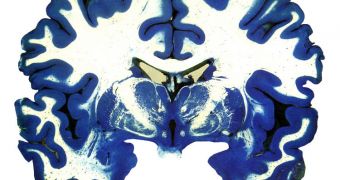Using funds provided by the US National Institutes of Health, investigators at the Johns Hopkins University (JHU) have discovered that mild cognitive decline and memory loss can be addressed using a new type of therapy.
The two conditions usually come shortly before the onset of various forms of cognitive decline, including Alzheimer's disease, a neurodegenerative type of dementia. Therefore, these results could be used to develop prevention tools against this condition.
In a paper published in the May 10 issue of the scientific journal Neuron, JHU neuroscientists say that the therapy they developed can improve memory and interrupt disease progression in most patients.
The team mostly focused on excess brain activity, which they say is an indicator of the aforementioned conditions. Past investigations had suggested that neural hyperactivity was a method the brain used to compensate for its own inability to form new memories.
What the JHU team found was that the phenomenon was actually contributing to amnestic MCI (aMCI), a condition that makes sufferers' memories worse than the average for their age, e! Science News reports.
“In the case of aMCI, it has been suggested that the increased hippocampal activation may serve a beneficial function by recruiting additional neural 'resources' to compensate for those that are lost,” researcher Michela Gallagher explains.
“However, animal studies have raised the alternative view that this excess activation may be contributing to memory impairment,” adds the expert, who was the lead author of the new paper.
She holds an appointment as the Krieger-Eisenhower professor of psychological and brain sciences, at the JHU Krieger School of Arts and Sciences. Together with the rest of the team, the researcher found that drugs used to treat epilepsy can contribute to quelling this excess activity in animal tests.
This research may be used as a starting point for efforts to create prevention therapies for MCI, Alzheimer's and other forms of dementia and neural degeneration. The team also included an expert from the University of California in Irvine (UCI).

 14 DAY TRIAL //
14 DAY TRIAL //